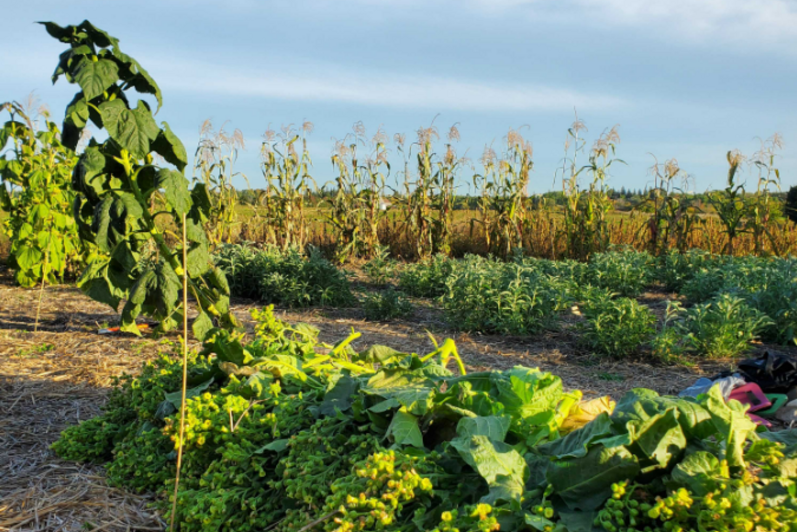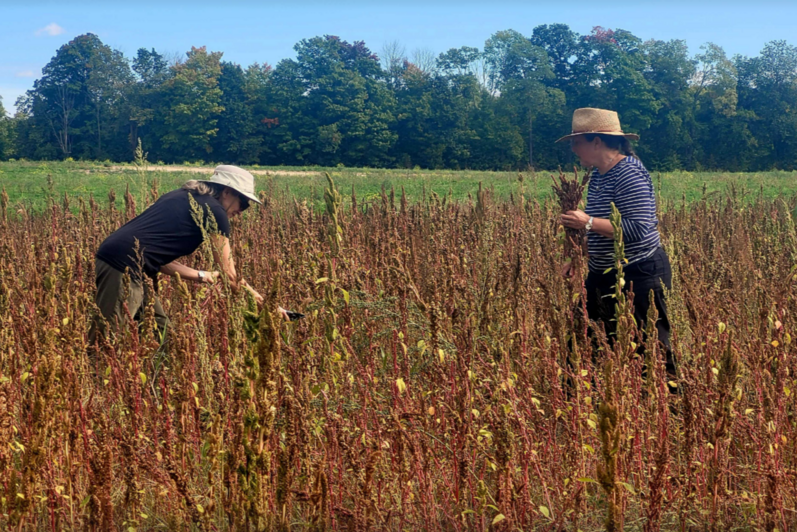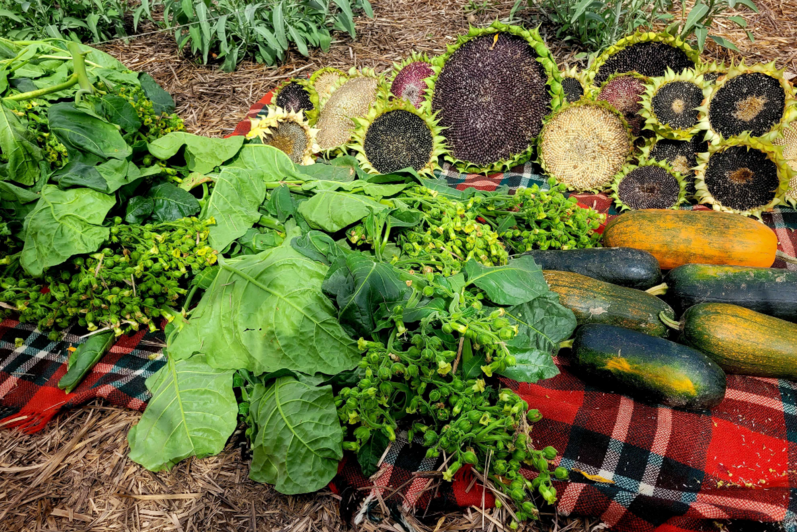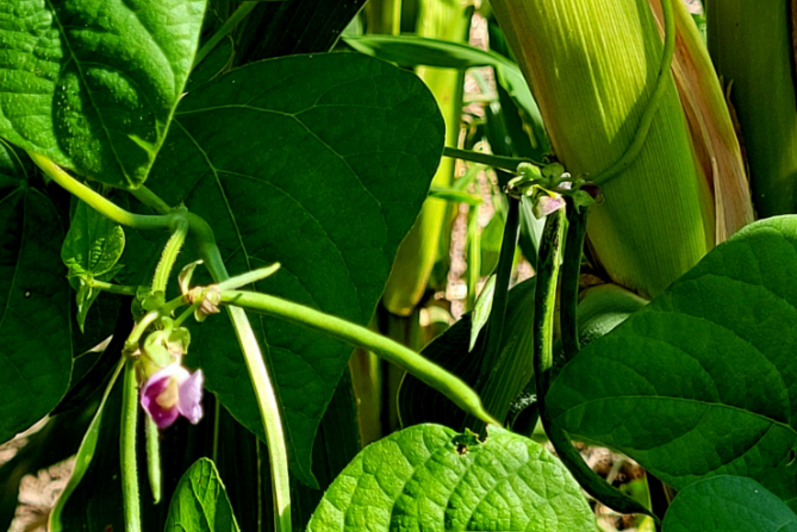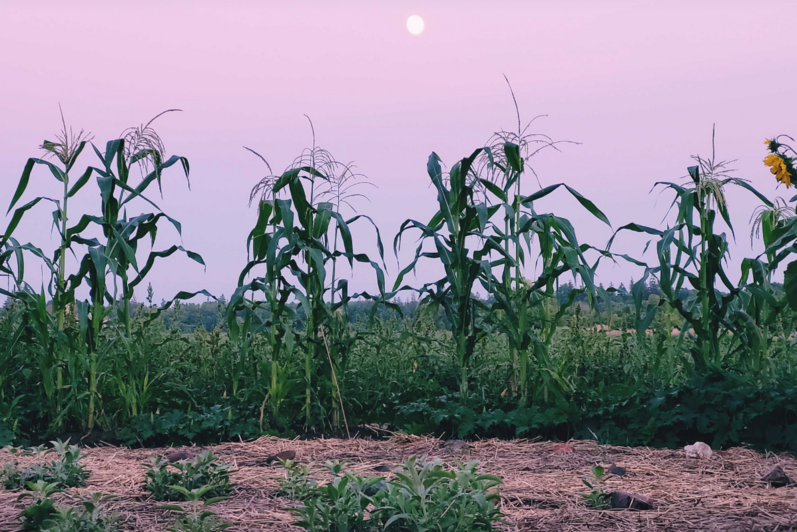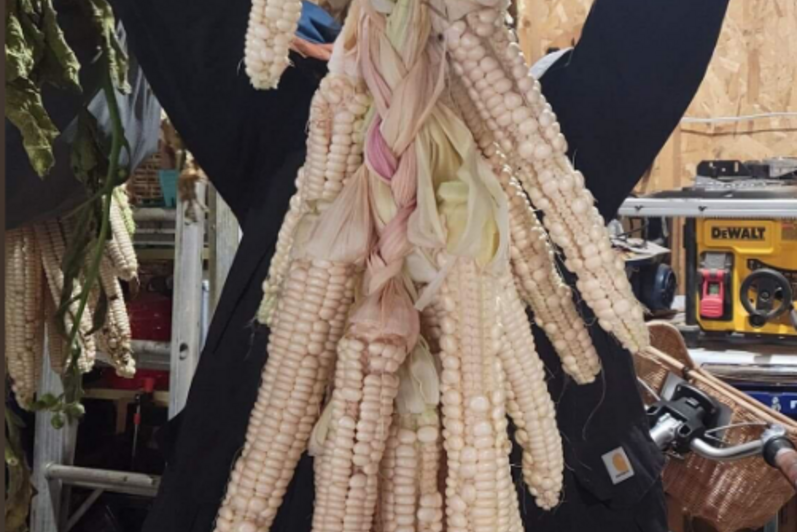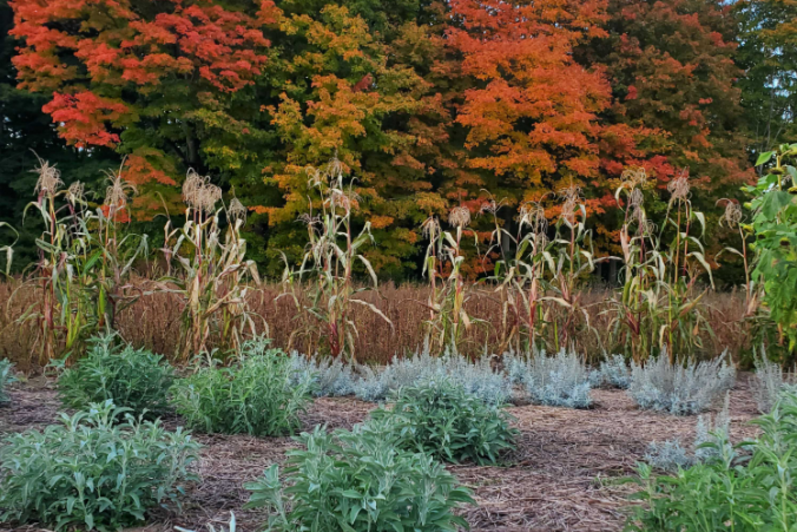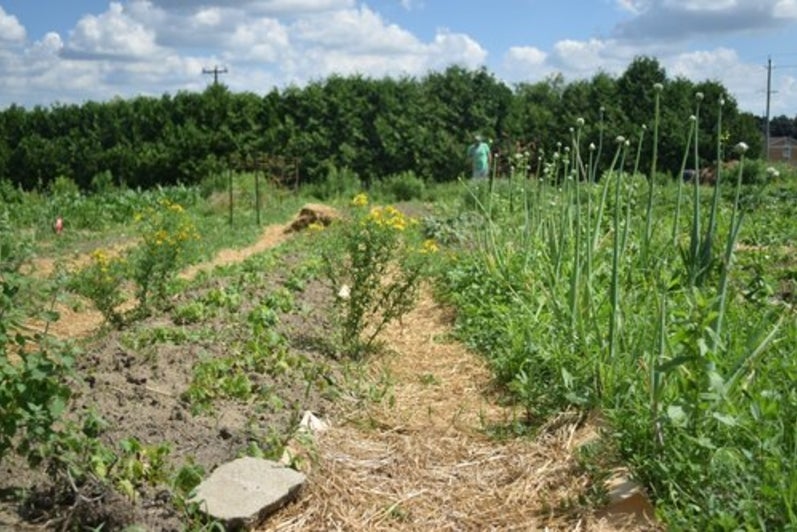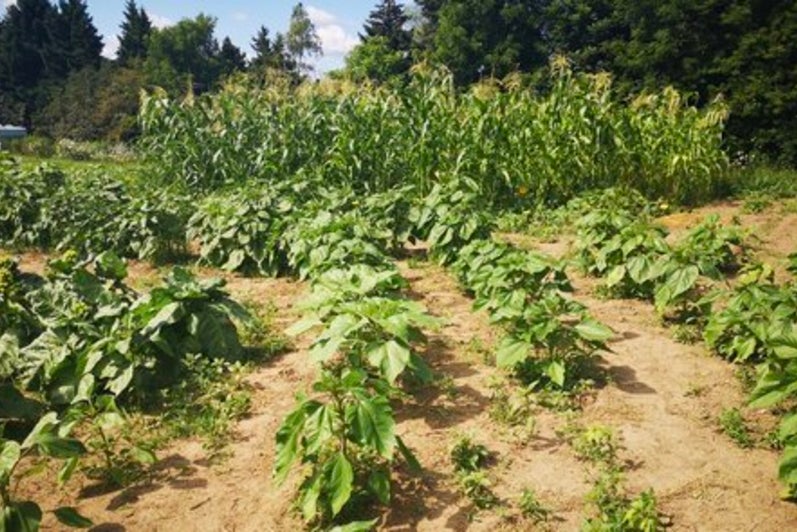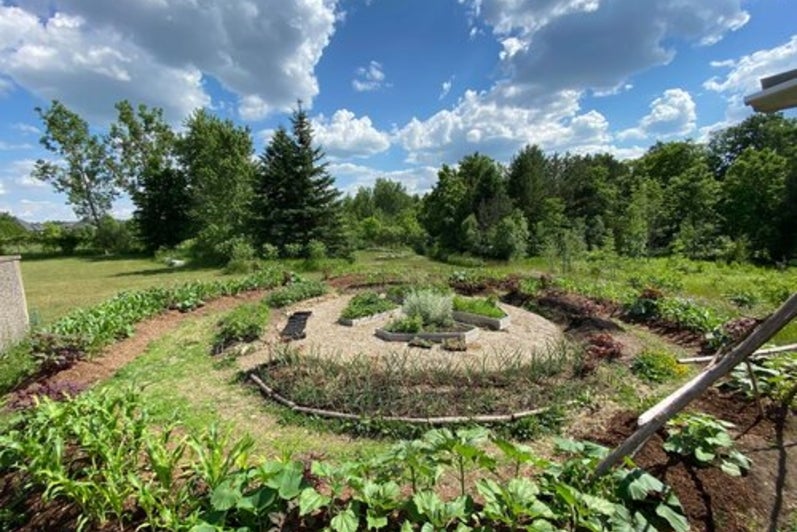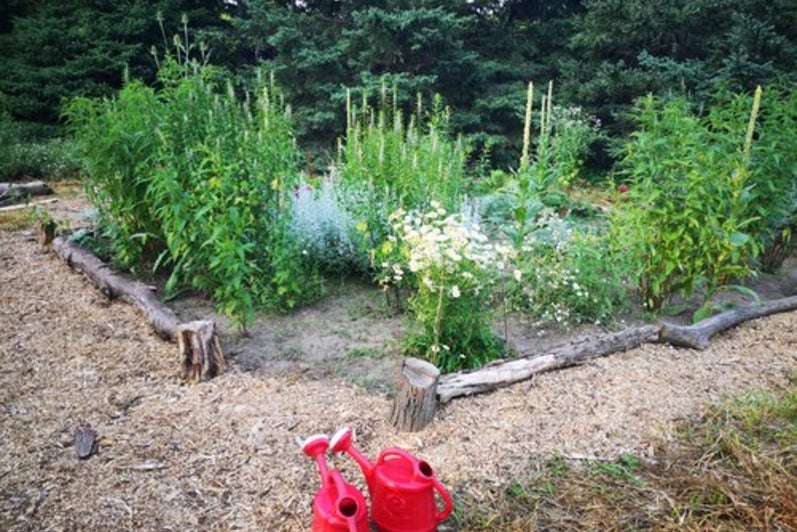Land Acknowledgement
Our Food Future acknowledges that many of the business work and initiatives belonging to Waterloo Region discussed in this paper take place on the traditional territory of the Anishinaabeg, Haudenosaunee, and Neutral peoples. The majority of Waterloo Region is located on the Haldimand Tract which was originally granted to the Six Nations and extends six miles or approximately 24,000 acres on either side of the Grand River.We recognize the utmost responsibility in our endeavor to improve Waterloo Region’s food system to serve as stewards for the land, honour the original caretakers who came before us, and work toward reconciliation within food system recommendations.

Crow Shield Lodge
At Crow Shield Lodge, an Indigenous land-based educational and healing space near New Hamburg, they nurture a medicine garden, where they grow the Three Sisters and sacred medicines, including tobacco, sage, cedar, and sweetgrass. The medicine garden teaches harmony, balance, and respect for all parts needed to sustain life.
Wisahkotewinowak
Wisahkotewinowak is an urban Indigenous garden collective in the Waterloo-Wellington Region working to build Land-based relationships. They consist of a diverse group of Indigenous (First Nation and Métis) and settler-allies. Collectively, with the wider community and our non-human kin (the Land, plants, animals and spirit), they nurture four gardens: a produce garden, a Three Sisters garden, a teaching garden, and a tea garden.
Indigenous Studies and Aboriginal Services have collaborated to develop a teaching garden at the college’s Kitchener - Doon campus. L-R: Clarence Cachagee, coordinator at Aboriginal Services; and Myeengun Henry, manager of Aboriginal Services.
The Conestoga College Indigenous Studies Teaching Gardens, located in an outdoor space in the southeast corner of the A-wing on Kitchener-Doon campus, is the combined efforts of Conestoga's Indigenous Studies program and Aboriginal Services (Be-Dah-Bin Gamik).
As a living classroom, the garden is meant to foster cross-cultural relationships and land-based learning and practice as a way to (re)connect with culture and language through food, Indigenous plants, and medicine. Covering 4,000 square feet, the garden is designed in the image of the medicine wheel with "three concentric circles and a lodge made from maple and willow sapling in the center" (Conestoga news, 2021).
The garden includes non-local Indigenous foods, mostly from South and Central America, such as Peruvian purple potatoes, along with local Indigenous foods and sacred medicines including:
- Tobacco
- Sweetgrass
- Corn
- Bush beans
- Squash
Websites
Indigenous Food Sovereignty Collective Waterloo Region
An Indigenous-led grassroots collective working to restore the land and build community through traditional Indigenous food systems.
...
The Thanksgiving Address
Legacies Earth to Table presents the Thanksgiving Address, the Haudenosaunee's greeting and thanks to the elements of life that sustain us, in both Mohawk and English.
...
Wisahkotewinowak
An urban Indigenous garden collective in the Waterloo-Wellington Region working to build Land-based relationships.
...
News & Publications — Wisahkotewinowak
Read articles featuring Wisahkotewinowak and their community work in Indigenous knowledge, teachings, practices and movements.
